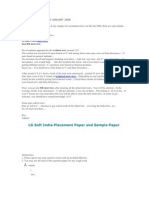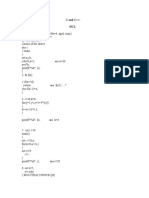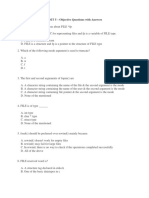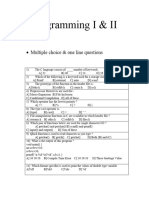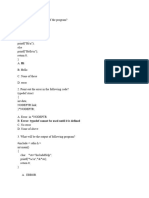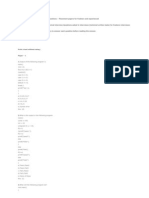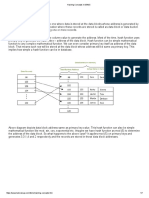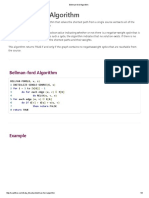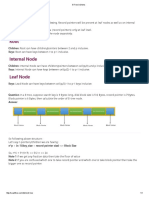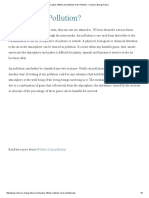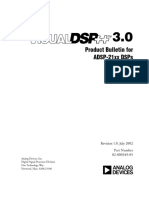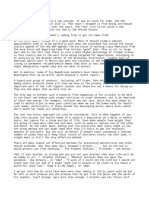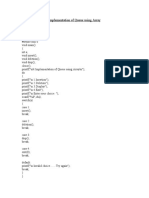0% found this document useful (0 votes)
160 views16 pagesGlobal Edge Paper Pattern
The document contains 16 multiple choice questions related to C programming and operating systems concepts. The questions cover topics like data types, operators, loops, functions, pointers, arrays, structures, file handling, preprocessor directives, networking, scheduling algorithms and synchronization. Sample questions include the output of code snippets, purpose of protocols like UDP, techniques to avoid race conditions and characteristics of real-time operating systems.
Uploaded by
karamthota bhaskar naikCopyright
© © All Rights Reserved
We take content rights seriously. If you suspect this is your content, claim it here.
Available Formats
Download as DOCX, PDF, TXT or read online on Scribd
0% found this document useful (0 votes)
160 views16 pagesGlobal Edge Paper Pattern
The document contains 16 multiple choice questions related to C programming and operating systems concepts. The questions cover topics like data types, operators, loops, functions, pointers, arrays, structures, file handling, preprocessor directives, networking, scheduling algorithms and synchronization. Sample questions include the output of code snippets, purpose of protocols like UDP, techniques to avoid race conditions and characteristics of real-time operating systems.
Uploaded by
karamthota bhaskar naikCopyright
© © All Rights Reserved
We take content rights seriously. If you suspect this is your content, claim it here.
Available Formats
Download as DOCX, PDF, TXT or read online on Scribd
/ 16
